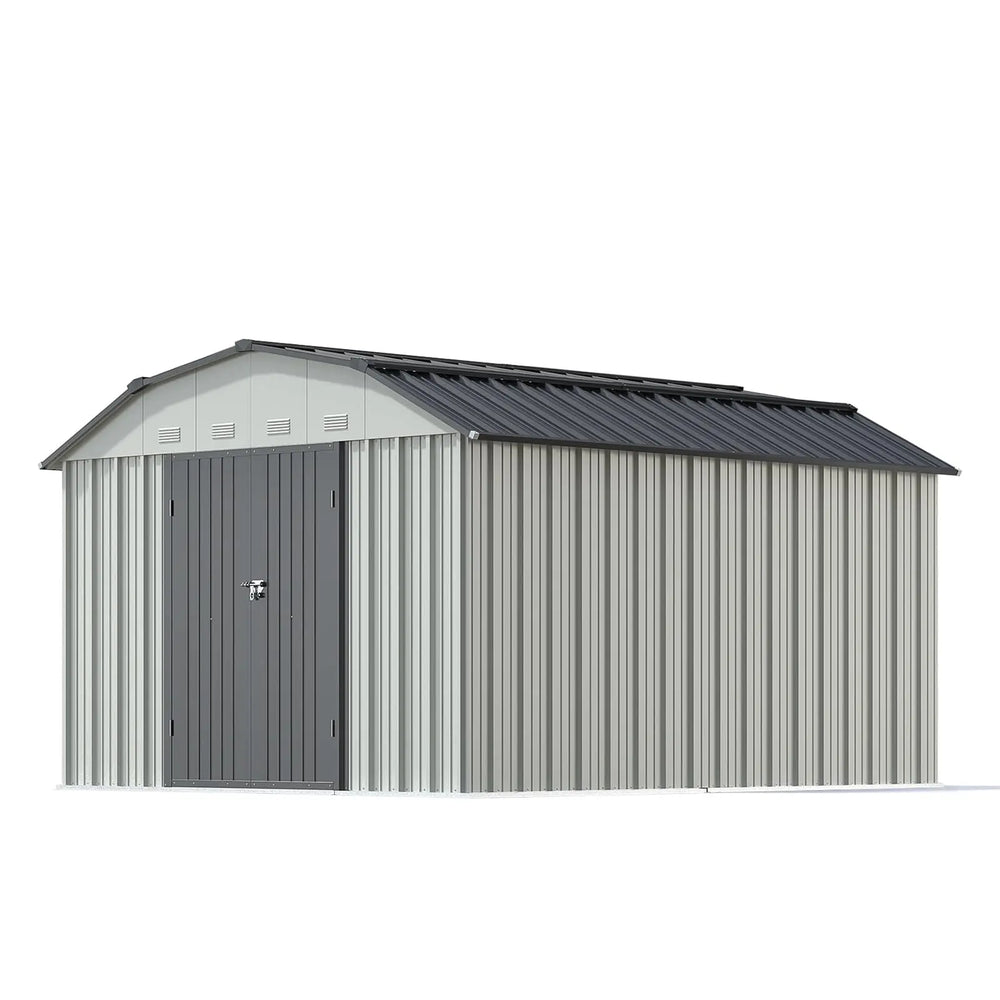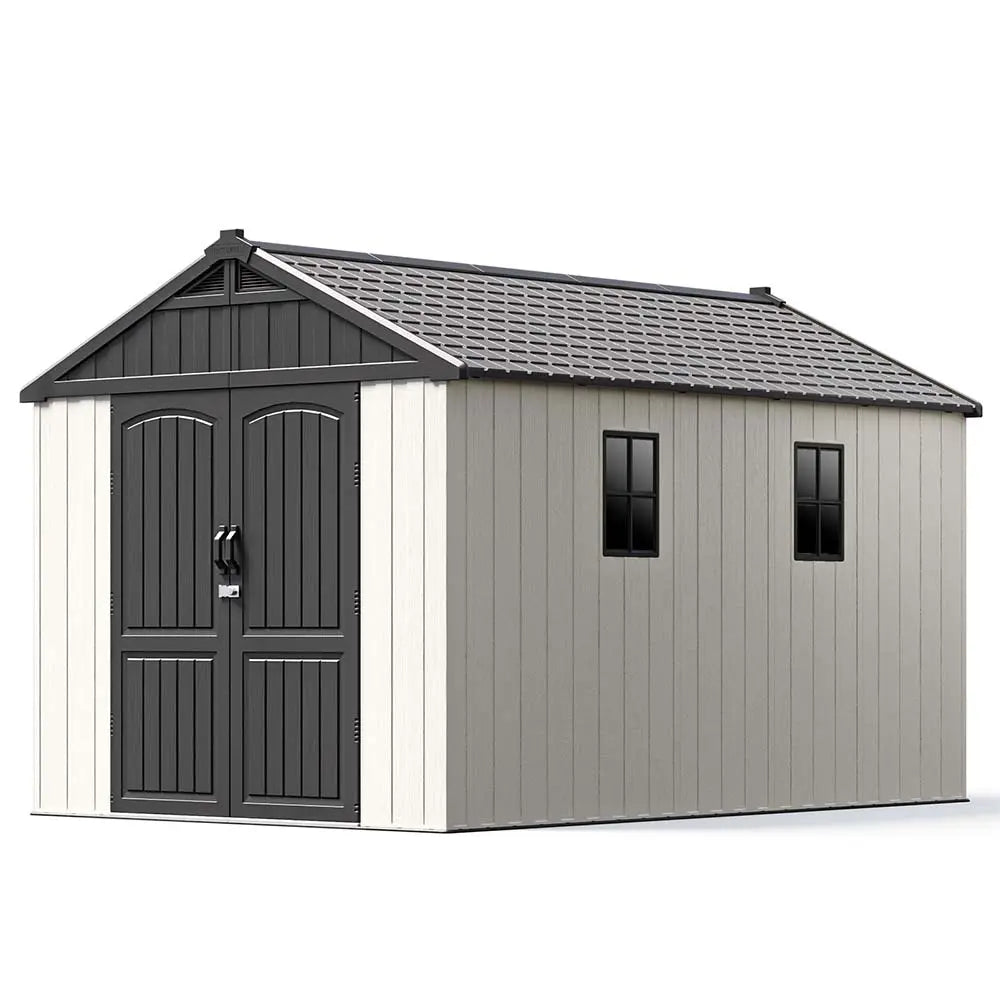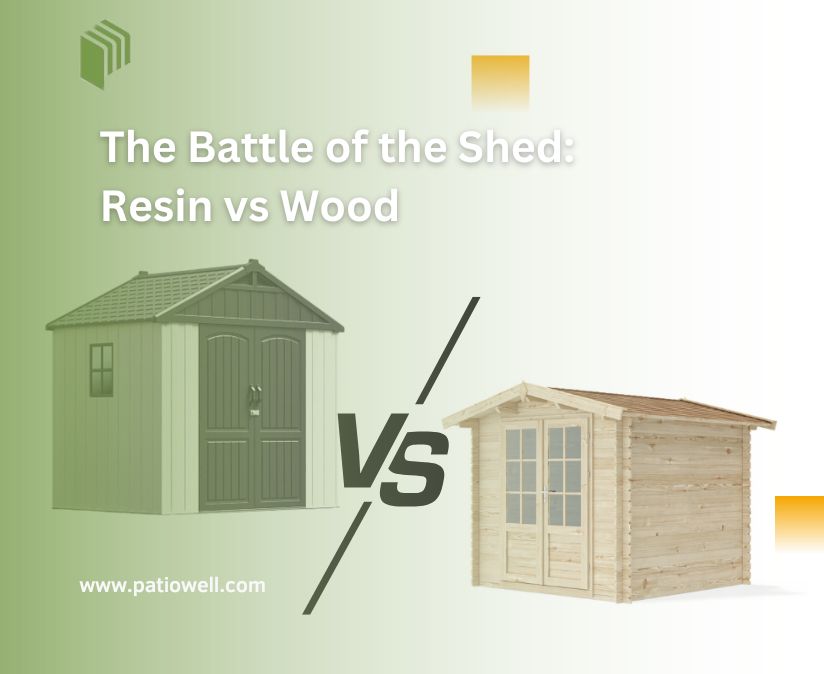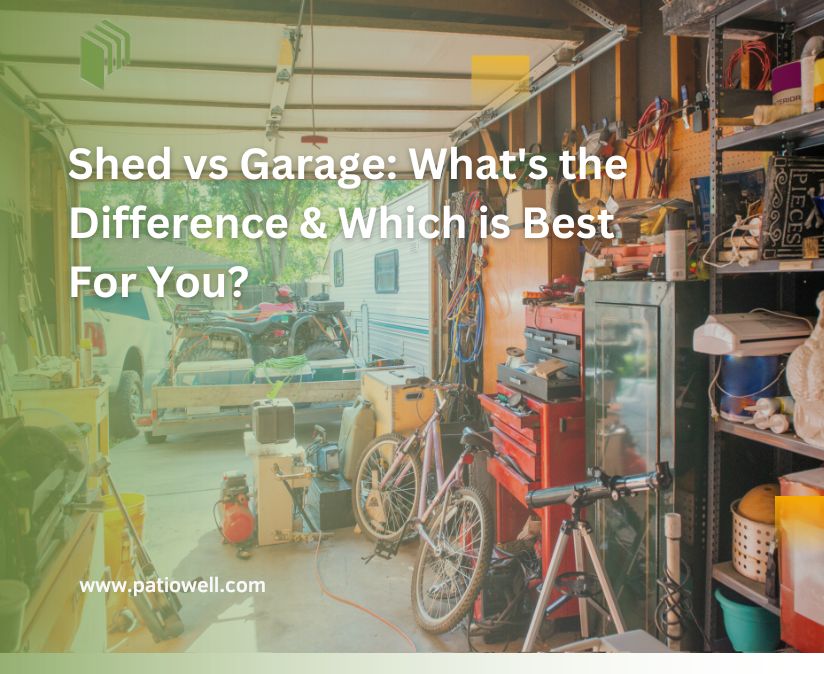Not sure what makes a shed vs barn different? You're not alone. Many people get confused when trying to pick the right one for their backyard or farm. It's hard to know which is better for storage, tools, or animals.
Table of Contents:[hide]
But don't worry as this article will help you figure it out. We'll explain the difference in simple terms, show the pros of each, and help you choose what fits your space and budget best.
The Difference Between Barns and Sheds
At first glance, barns and sheds might seem pretty similar—they both offer extra space and can sit in your backyard or on a farm. But they actually serve different purposes and are built in different ways.
A barn is usually much bigger than a shed. It's often used on farms to store equipment, hay, or even to house animals like horses and cows. Barns have strong, tall structures and are built to handle heavy use. They often have large doors, higher ceilings, and are made with long-lasting materials like wood or metal.
On the other hand, a shed is smaller and more compact. Sheds are great for everyday storage—think garden tools, bikes, lawnmowers, or seasonal items. They're perfect for homeowners who need a little extra space but don't need something as large or heavy-duty as a barn. Sheds also come in different sizes and materials, from plastic to wood and metal.
So, the main difference comes down to size, purpose, and durability. If you need a simple spot to keep your tools dry, a shed might be just right. But if you're storing large equipment or need space for animals, a barn is probably the better choice.
Types of Sheds and Barns
There's no one-size-fits-all when it comes to sheds and barns. Both come in a variety of styles to fit different needs, spaces, and budgets. Let's break down the most common types so you can see which one sounds right for you.
|
Category |
Type |
Key Features |
|
Sheds |
Garden Shed |
Store gardening tools, pots, soil; keep yard tidy |
|
Larger than garden shed; hold bikes, outdoor furniture, lawn equipment |
||
|
Tool Shed |
Small; focus on tool organization for small projects |
|
|
Plastic/Resin Shed |
Lightweight, low-maintenance, easy assembly; quick setup |
|
|
Wooden Shed |
Classic, customizable, match home exterior; require maintenance |
|
|
Barns |
Gambrel Roof Barn |
"Barn-style" roof; extra interior space for hay storage or lofts |
|
Pole Barn |
Simple, cost-effective; use ground poles for support; store large items/animals |
|
|
Horse Barn |
Designed for horses; include stalls, storage, tack rooms |
|
|
Metal Barn |
Durable, weather-resistant, low maintenance; long-lasting |
|
|
Red Barn (Traditional) |
Classic farm design; versatile for storage, animals, and farm needs |
Each type has its own purpose, so knowing what you'll use it for is key.
What Are the Advantages Of A Barn
Barns are more than just large storage spaces; they are versatile structures that serve multiple critical functions on a farm or large property.
Here are some key advantages:
1. Versatile Storage and Shelter
Barns provide ample space for storing large equipment, vehicles, and feed. They also offer shelter for livestock, protecting them from harsh weather conditions.
2. Customizable Design
Modern barns, especially pole barns, offer flexible layouts that can be tailored to specific needs, such as separating livestock, creating tack rooms, or designating feed storage areas.
3. Durability and Longevity
Constructed with robust materials like metal or treated wood, barns are designed to withstand severe weather and provide long-term service.
4. Enhanced Property Value
A well-maintained barn can increase the overall value of a property, making it more appealing to potential buyers seeking functional farm infrastructure.
5. Improved Animal Welfare
Barns offer a controlled environment for livestock, ensuring their comfort and health by providing adequate space, ventilation, and protection from predators.
What Are Advantages Of A Shed
Sheds are compact, versatile structures that offer numerous benefits for homeowners and small-scale property owners. Here are some notable advantages:
1. Efficient Organization
Sheds provide a dedicated space to store tools, gardening equipment, and seasonal items, helping to declutter homes and garages.
2. Cost-Effective Storage Solution
Compared to larger structures, sheds are more affordable and require less time and resources to construct or install.
3. Enhanced Property Aesthetics
A well-designed shed can complement the landscape, adding visual appeal and potentially increasing property value.
4. Versatility
Beyond storage, sheds can serve as workshops, hobby spaces, or even home offices, offering a quiet retreat separate from the main living area.
5. Protection for Belongings
Sheds safeguard items from weather elements, reducing the risk of damage from moisture, UV exposure, or pests.
How to Choose the Good Storage Compartment?
Choosing between a shed and a barn—or picking the right model—comes down to more than just looks.
Here are some key things to think about before you buy:
1. Size: What Will You Store?
The first thing to figure out is how much space you actually need. Are you storing a few tools, or something big like a lawn tractor or livestock feed?
- Sheds: Great for small-to-medium storage like tools, bikes, or gardening supplies.
- Barns: Better for larger needs—equipment, hay, or animals.
Always go slightly bigger than you think you'll need. Storage tends to fill up fast.
2. Material: Durability and Maintenance
The material you choose affects how long the structure lasts and how much care it needs.
- Wood: Classic and attractive, but needs regular upkeep (like painting or sealing).
- Metal: Strong and weather-resistant. Ideal for long-term durability with low maintenance.
- Plastic/Resin: Lightweight, affordable, and nearly maintenance-free. Best for light storage.
If you live in a rainy or humid area, go for materials that won't rot or rust easily.
3. Style and Color: Match Your Property
While function comes first, looks still matter—especially if the structure is visible from your home.
- Choose a style that complements your house or property layout. Gambrel roofs, modern lines, or classic barn shapes all offer different vibes.
- Pick a color that blends in or stands out, depending on your goal (subtle vs. statement).
Some sheds and barns come in customizable colors and finishes, so you don't have to settle for basic.
4. Cost: What's Your Budget?
Prices can vary widely based on size, material, and brand.
- Sheds: Usually range from a few hundred to a few thousand dollars.
- Barns: Can start around a few thousand and go much higher, depending on features and customization.
Factor in long-term value—not just upfront cost. A more expensive but durable option may save you money down the road.
Choosing the right shed or barn means balancing space, style, durability, and cost. Up next, we'll make it even easier with some top picks you can check out today!
Top Picks for You: Shed and Barn
If you're stuck between getting a shed or a barn, these top picks from Patiowell make the choice easier. The 10x12 Metal Shed with Gambrel Roof brings classic barn-style charm with practical features. Its spacious interior and tall roof make it perfect for storing large tools, seasonal equipment, or even turning into a hobby workshop. The strong metal build adds durability, and the design offers extra headroom you don't usually get with standard sheds.

- Ideal for storing larger outdoor equipment or creating a workshop.
- Built with galvanized steel, it is resistant to rust, rot, and harsh weather conditions.
- Offers plenty of space for shelves, hooks, and other organizational solutions.
- The robust metal construction ensures long-lasting protection for your belongings.
On the other hand, the Kick-it 8x12 Plastic Storage Shed is a smart, low-maintenance option for anyone needing reliable backyard storage. It's made from weather-resistant plastic (HDPE), which means no rust, no repainting, and easy cleaning. Whether you're storing garden tools, outdoor furniture, or bikes, this shed is designed to keep everything safe and dry without the hassle.

- Allowing you to store larger items like lawnmowers, bikes, and garden tools.
- Helps maintain a stable internal temperature to protect items from extreme heat or cold.
- Stylish and modern design that blends seamlessly into your outdoor space.
- Comes with a sturdy floor that can withstand heavy loads, providing a solid foundation.
Conclusion
In conclusion, whether you choose a shed or a barn really depends on your needs. Barns are great for larger storage and livestock, offering plenty of space and durability. On the other hand, sheds are perfect for smaller, everyday storage with less maintenance. Both options have their benefits, so think about what you need to store, how much space you have, and what fits your budget. With the right choice, you'll have a storage solution that works for you.
Diana Mason
Hi there! I’m Diana Mason, the chief editor of Patiowell brand. With over 15 years of diving deep into the world of outdoor furniture, I’ve developed a keen eye for what makes outdoor spaces truly special. I love sharing tips and inspiration to help you create your perfect backyard retreat. Our blog is a reflection of my passion and expertise, featuring only the best pieces that I personally vouch for. Thanks for stopping by—I can't wait to help you transform your outdoor living space!








Leave a comment
All comments are moderated before being published.
This site is protected by hCaptcha and the hCaptcha Privacy Policy and Terms of Service apply.